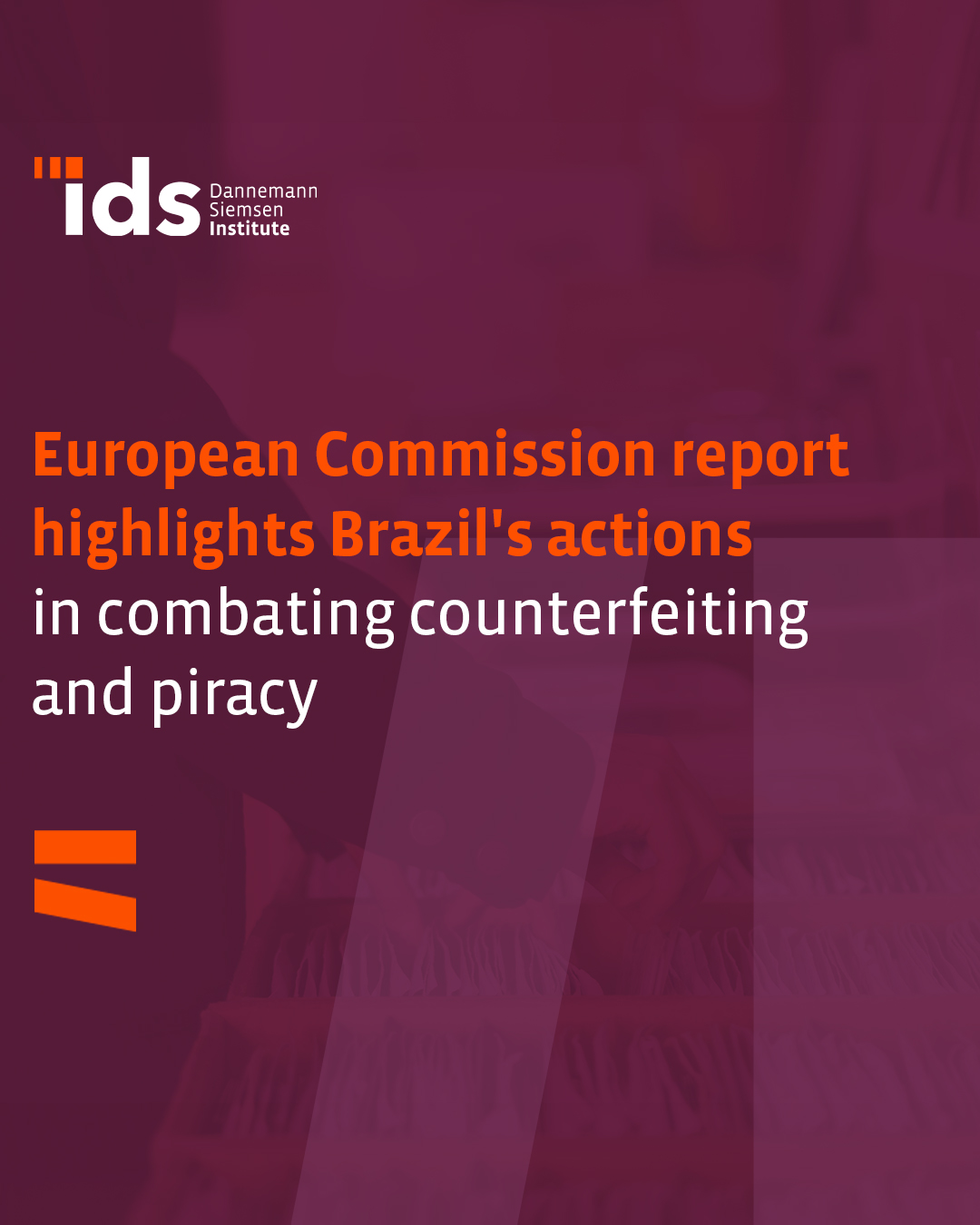17 de junho de 2025
Share
European Commission report highlights Brazil’s actions in combating counterfeiting and piracy
On May 2, 2025, the European Commission released the fourth edition of the Counterfeit and Piracy Watch List, a report that, since 2018, has been tracking key global trends related to counterfeiting and piracy. The document presents a carefully selected list of physical markets and digital platforms that, according to consulted stakeholders, are allegedly offering, facilitating, or benefiting from such illicit activities. Among the countries highlighted, Brazil stands out as an example of a robust approach to combating piracy.
The report begins by contextualizing the economic and social impacts of counterfeiting and piracy, presenting recent data on seizures and global trends. It then highlights significant progress achieved since the previous edition, with a particular focus on measures adopted by public authorities and digital platforms.
The document further delves into the analysis of online service providers that offer or facilitate access to copyright-protected content, investigating common practices associated with digital piracy. It also examines the role of e-commerce platforms and social networks in the dissemination of counterfeit goods, as well as the activities of online pharmacies and physical markets, a context in which Brazil is once again recognized for its recent actions.
In the 2025 edition, Brazil is acknowledged for the measures implemented to combat digital piracy. According to stakeholder reports, the Operation 404 stands out for its efforts to suppress online piracy across websites and applications. This operation includes court orders for the blocking of websites, as well as search and seizure actions targeting major piracy players.
Regarding the use of judicial measures to block websites that distribute pirated content, Brazil is cited in cases involving various types of platforms, such as cyberlockers (cloud-based services that store and share unauthorized files such as music and movies), stream ripping services (tools that allow users to download music or videos directly from streaming platforms), and linking or referring websites (sites that organize and share links to pirated content). In addition, the report highlights peer-to-peer indexing sites and BitTorrent platforms (which connect users for the direct sharing of copyright-protected files). These practices primarily impact the music and audiovisual industries.
In the physical market sphere, Brazil appears on the Watch List due to the widespread circulation of counterfeit goods, particularly in areas such as “Rua 25 de Março” in São Paulo, the footwear manufacturing hub of Nova Serrana (MG), and markets in cities such as Rio de Janeiro and Brasília. In response, the country has intensified its anti-counterfeiting operations, with notable actions such as Operação Fake Brand, which resulted in the seizure of more than 20,000 items. Also highlighted are Operação Blackbeard, a nationwide effort conducted jointly by more than 100 public agencies and targeted initiatives against counterfeit toys, including Operação Bad Toys, This Is Not a Toy, and Operação Pinocchio. Finally, in the customs enforcement domain, the report underscores significant seizures along the Brazil and Paraguay border.
The Counterfeit and Piracy Watch List can be accessed via the following link: Watch List
Note: For quick release, this English version is provided by automated translation without human review.
